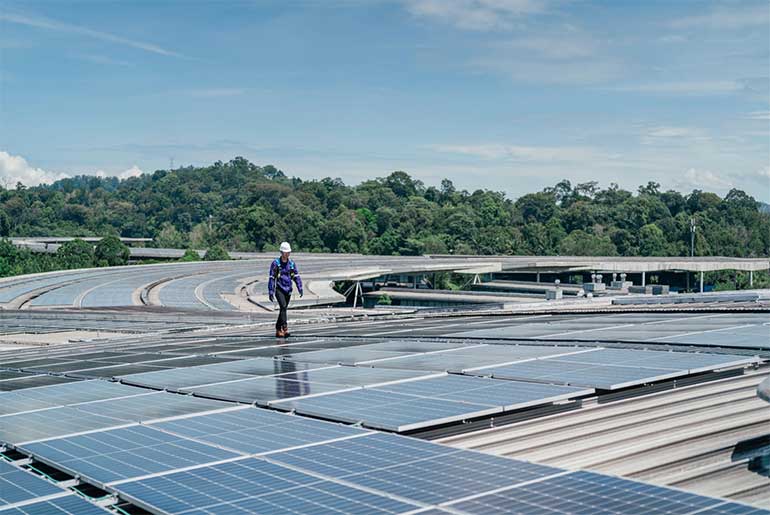Gentari, a clean energy provider, signed a partnership agreement with engineering and infrastructure powerhouse Gamuda to co-develop a large-scale solar and battery energy storage project to support hyperscale data center clients in Malaysia as the sector continues to boom.
The project will see 1.5 gigawatts of solar photovoltaic installed, with the project to be provided through the Corporate Renewable Energy Supply Scheme (CRESS). The project should deliver the reliable low-carbon power necessary to support the growing demand of hyperscale data centers, which are essential to artificial intelligence, cloud computing and the associated wider digital services. An immediate expansion of renewables is needed to supply over 5 gigawatts of firm power to such facilities by 2035.
Gentari will contribute to this partnership its expertise in renewable energy development and operations with a portfolio of more than 8 gigawatts of installed and pipeline projects. Gamuda adds to this with engineering and construction capacities, and thus the collaborative effort lends itself some expertise as well as operational capacity. Collectively, the two companies will provide a highly efficient clean energy solution to data center operators and, at the same time, serve the digital ambitions of Malaysia and be in line with national net-zero objectives.
Low Kian Min, Chief Renewables Officer at Gentari, stressed that the collaboration would serve a dual purpose: “Malaysia’s digital economy is growing rapidly. Expanding renewable energy capacity is not only critical for meeting this demand but also key to driving long-term growth.”
Joshua Kong Sing Hoe, Director of Gamuda Energy, pointed out the wider economic benefits of the initiative: “Availability of clean energy is a critical factor for attracting foreign direct investment and retaining investments from the world’s leading technology companies in Malaysia. This landmark partnership sets the model for future collaborations.”
The project is considered to be highly strategic, and several advantages can be identified: the improvement of the country upon the sphere of digital infrastructure in Malaysia, the introduction of resilience in the sector of the national grid by using battery storage, the better positioning of Malaysia as a venue where international technology investment can be encouraged, and the example of how the implementation of renewable energy can be carried out with the help of a public-private partnership under the CRESS framework.
What it practically means is that, alongside the digital expansion, Malaysia wants to become a green technology hub, combining the development of digital capabilities and sustainability. The solar and BESS electricity hub in progress will not only energize data centers but also support the overall evolution of the economy towards the decarbonized future.



